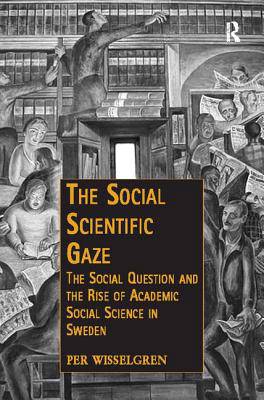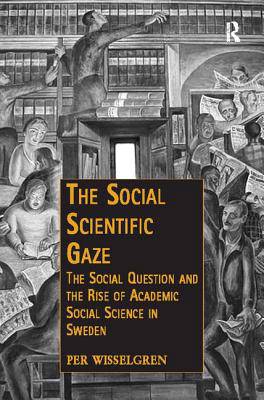
- Retrait gratuit dans votre magasin Club
- 7.000.000 titres dans notre catalogue
- Payer en toute sécurité
- Toujours un magasin près de chez vous
- Retrait gratuit dans votre magasin Club
- 7.000.0000 titres dans notre catalogue
- Payer en toute sécurité
- Toujours un magasin près de chez vous
The Social Scientific Gaze
The Social Question and the Rise of Academic Social Science in Sweden
Per Wisselgren
67,95 €
+ 135 points
Format
Description
The social sciences have, ever since they were first established as academic disciplines, played a foundational role in most spheres of modern society - in policy-making, education, the media and public debate - and hence also, indirectly, for our self-understanding as social beings. The Social Scientific Gaze examines the discursive formation of academic social science in the historical context of the 'social question', that is, the protracted and wide-ranging discussions on the social problems of modernity that were being debated with increased intensity during the nineteenth century. Empirically, the study focuses on the Lorén Foundation, a combined private funding agency and early research institute, which was set up in 1885 to promote the rise of Swedish social science and to investigate the social question. Comprising an heuristic case, the close analysis of the Foundation makes it possible not only to reconstruct its basic ideas and practices, but also to situate its activities in broader historical and sociological context. The Social Scientific Gaze argues that the rise of Swedish social science may be seen not only as an 'answer' to the social 'question', but also as one attempt alongside others - including contemporary social literature, the philantropic reform movement, and the introduction of modern social policy - to conceptualize, mobilize and regulate the social sphere. In this process it is furthermore shown how an ambigious yet distinct 'social scientific gaze' was discursively articulated.
Spécifications
Parties prenantes
- Auteur(s) :
- Editeur:
Contenu
- Nombre de pages :
- 286
- Langue:
- Anglais
- Collection :
Caractéristiques
- EAN:
- 9781138501942
- Date de parution :
- 30-06-17
- Format:
- Livre broché
- Format numérique:
- Trade paperback (VS)
- Dimensions :
- 156 mm x 233 mm
- Poids :
- 452 g

Les avis
Nous publions uniquement les avis qui respectent les conditions requises. Consultez nos conditions pour les avis.






